(By Chen Ye) On the morning of March 9, the opening ceremony for the Industrial Science Laboratory at the Hangzhou International Innovation Institute of Beihang University (H3I) took place, marking the official launch of an international teaching laboratory that encapsulates the collective wisdom of China and France after an 18-month construction period. This represents a significant advancement for H3I in training outstanding engineers and fostering a deep integration of industry, academia, and research.
Jointly drawing the blueprint for cooperation, exploring the future of education
Attendees of the ceremony included Hervé Riou, Honorary President of the Union des Professeurs de Sciences et Techniques Industrielles (UPSTI); Florent LE BOURHIS, President of UPSTI; Pan Changqing, Director of the Higher Education Division (Exchange and Cooperation Division) of the Hangzhou Municipal Education Bureau; Hong Guanxin, Deputy Party Secretary and Director of H3I; and Frédéric GENTY, the French Dean of Zhongfa Aviation Institute of Beihang University (ZFAI). Witnessed by faculty and students present, Florent LE BOURHIS and Frédéric GENTY unveiled the laboratory.
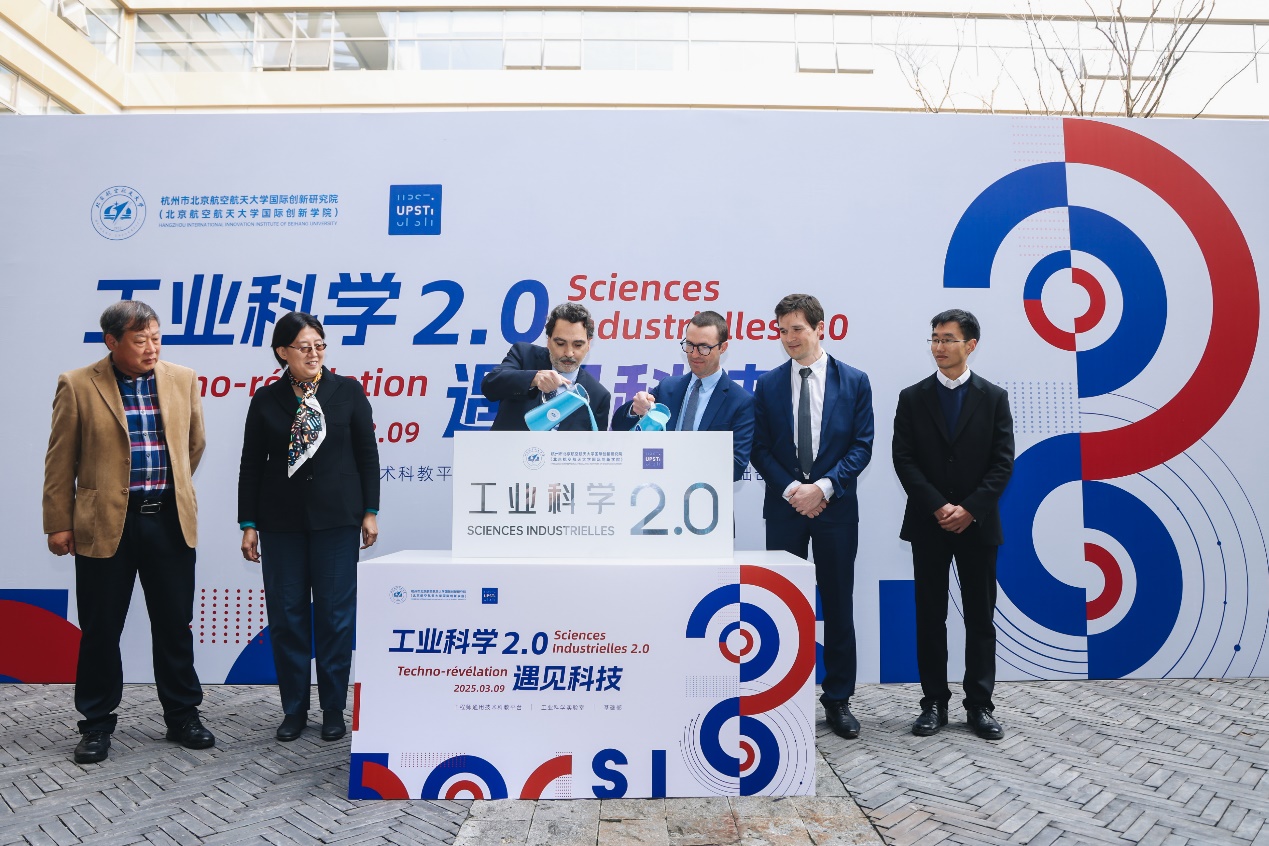
Florent LE BOURHIS said that industrial science was the soul of engineering education in France. The Industrial Science Laboratory is not only a vehicle for technology, but also a bridge for cultural exchange between China and France. He expected that the laboratory could evolve into an innovative workshop where teachers and students from both countries could jointly explore the future of industry.
Frédéric GENTY pointed out that it took the team 18 months to bring their design to fruition and their concept into reality. Students will be able to tackle complex engineering problems in “real-world industrial scenarios”.
Pan Changqing said that as an ancient yet modern city, Hangzhou had been committed to the deep integration of education and technology. The city is striving to become a globally competitive innovation hub. The Industrial Science Laboratory stands as a vivid testament to this vision. He sincerely hoped that universities and primary and secondary schools could build distinctive bases for practical education, which were in line with modern industrialization and local economic needs. In doing so, these institutions could advance the deep integration of industry, academia, research, and application, thereby contributing to the transformation and upgrading of the local economy.
Zhang Wei, Vice Director of H3I, pointed out that the laboratory’s four modules and eight scenarios were designed to enhance students’ ability to tackle complex problems. Students of Beihang University will have to learn not only to use instruments but also to “create value” in real-world topics about transportation, healthcare, energy, etc.
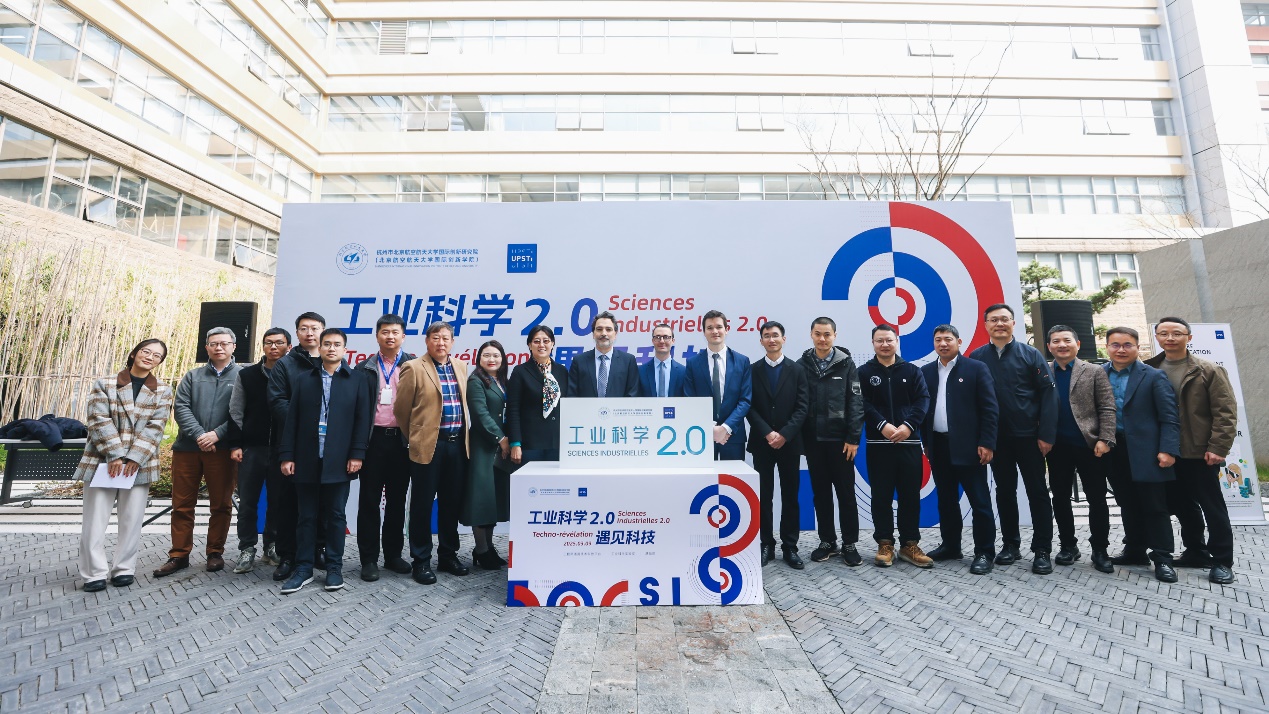
Creating the future with original ideas, giving the answer through practice
In the exhibition area for scientific and technological innovation by students, 17 sets of works designed for the French Industrial Science Olympiad were displayed in order. Through physical models, dynamic demonstrations, and poster presentations, students interacted with guests to showcase the rich achievements of innovative thoughts from China and France. The venue was brimming with the vibrant fusion of science and humanity.
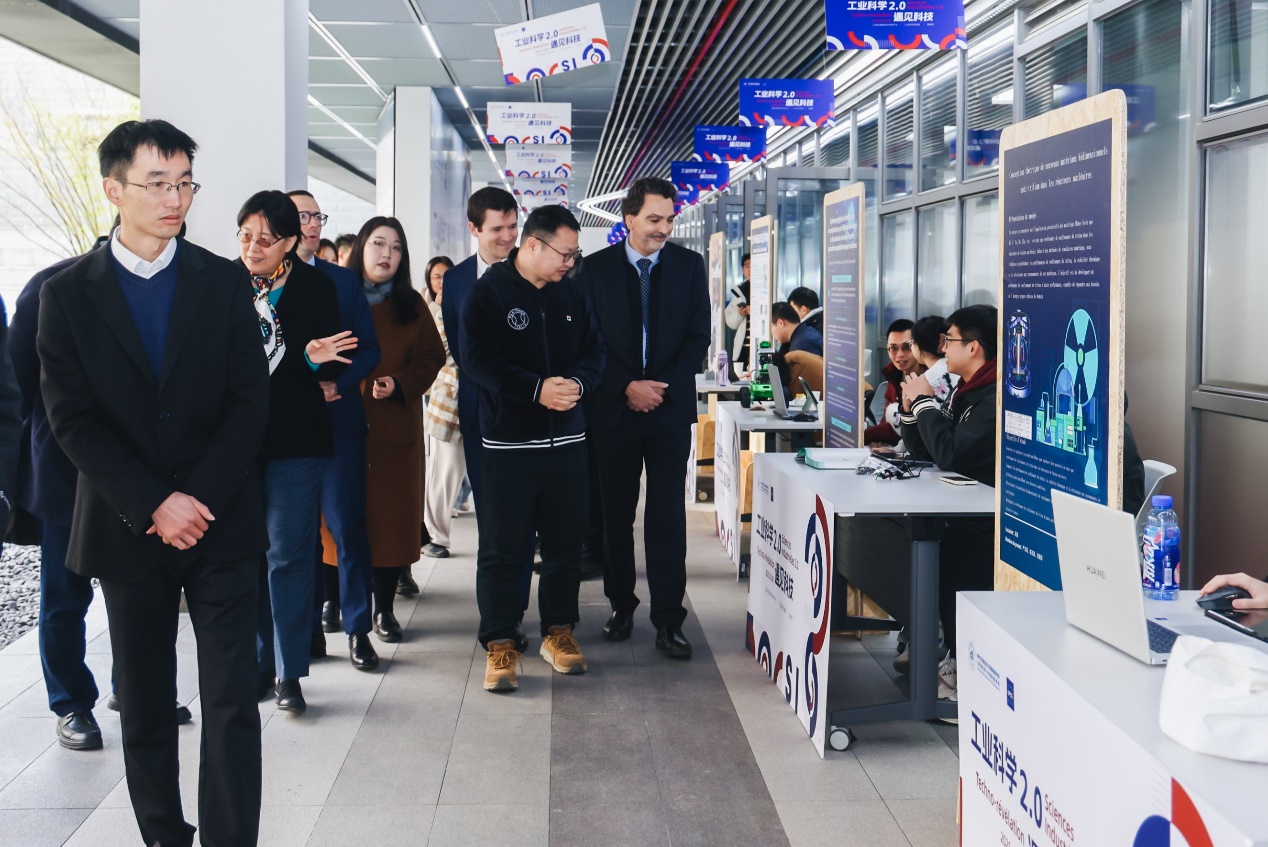
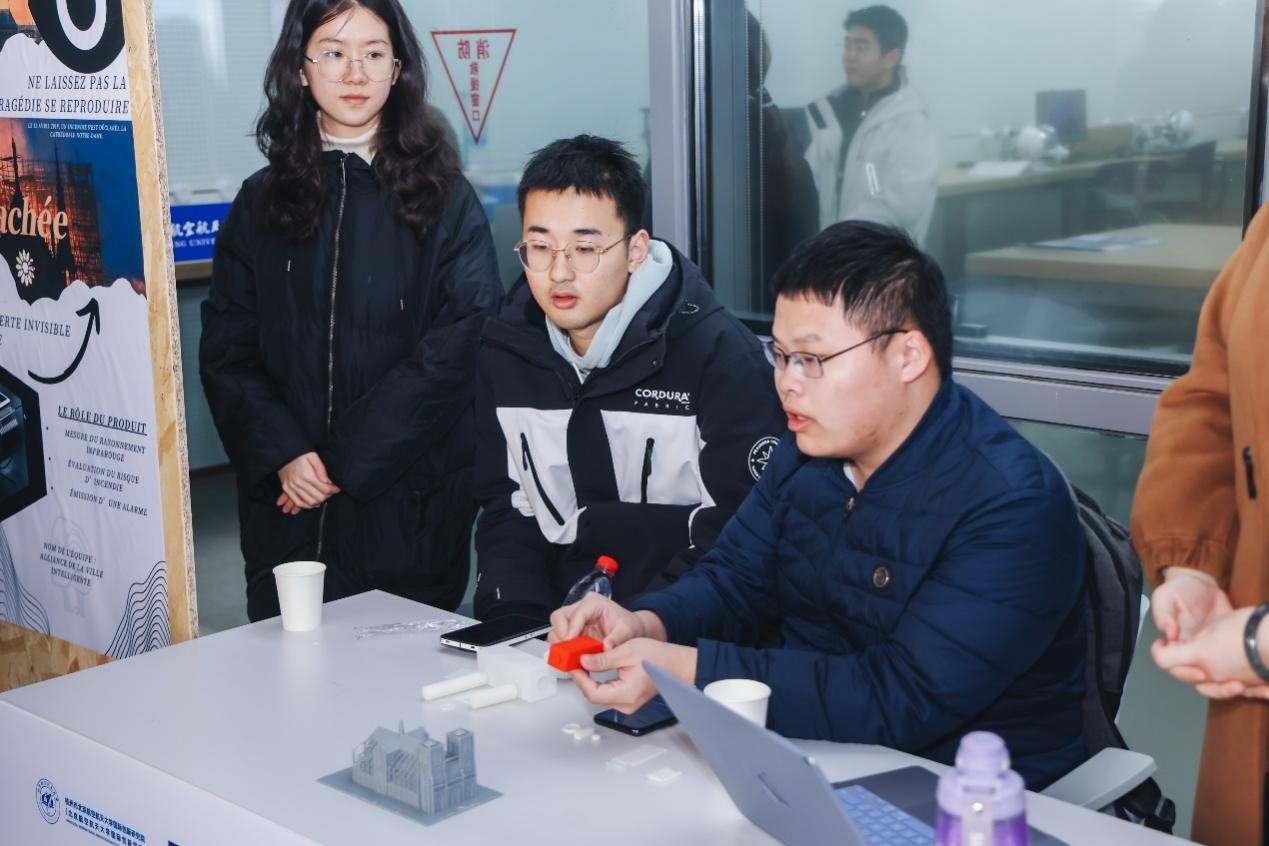
At the exhibition booth for smart bus seats, students invited guests to try out seat models, which were embedded with micro-vibration power generation devices. “As the bus operates, the vibration energy generated can be converted into electrical energy through piezoelectric materials, powering the onboard electronic devices,” the project members explained during the demonstration. Pan Changqing personally tried out the seat and examined the real-time data output. He marveled at the students’ remarkable creativity in turning “useless vibrations” into “urban microgrids”.
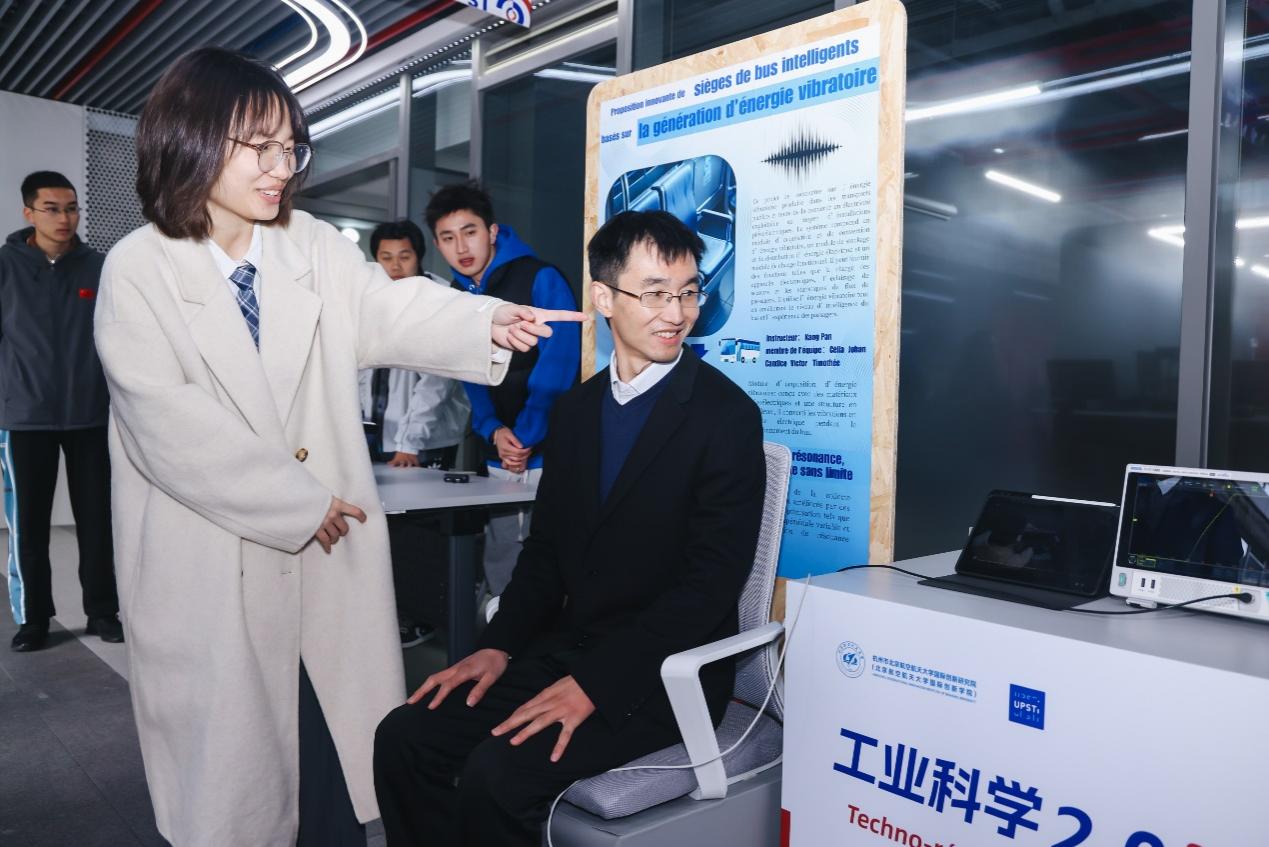
During the event, guests, teachers, and students gathered and engaged in discussions about various modules displayed by the Industrial Science Laboratory. They gained insights into the integration of Chinese and French features of talent education, as well as the careful planning and layout of teaching. The laboratory is equipped with more than 20 sets of distinctive experimental teaching instruments from different sectors and industrial scenes in France. The laboratory has also provided essential experimental facilities, including 3D printing, and numerical control milling machines, which help students put their creativity into practice, alongside an independent space for communication and discussion. The laboratory has created an all-encompassing environment of learning, practice, and innovation for students.
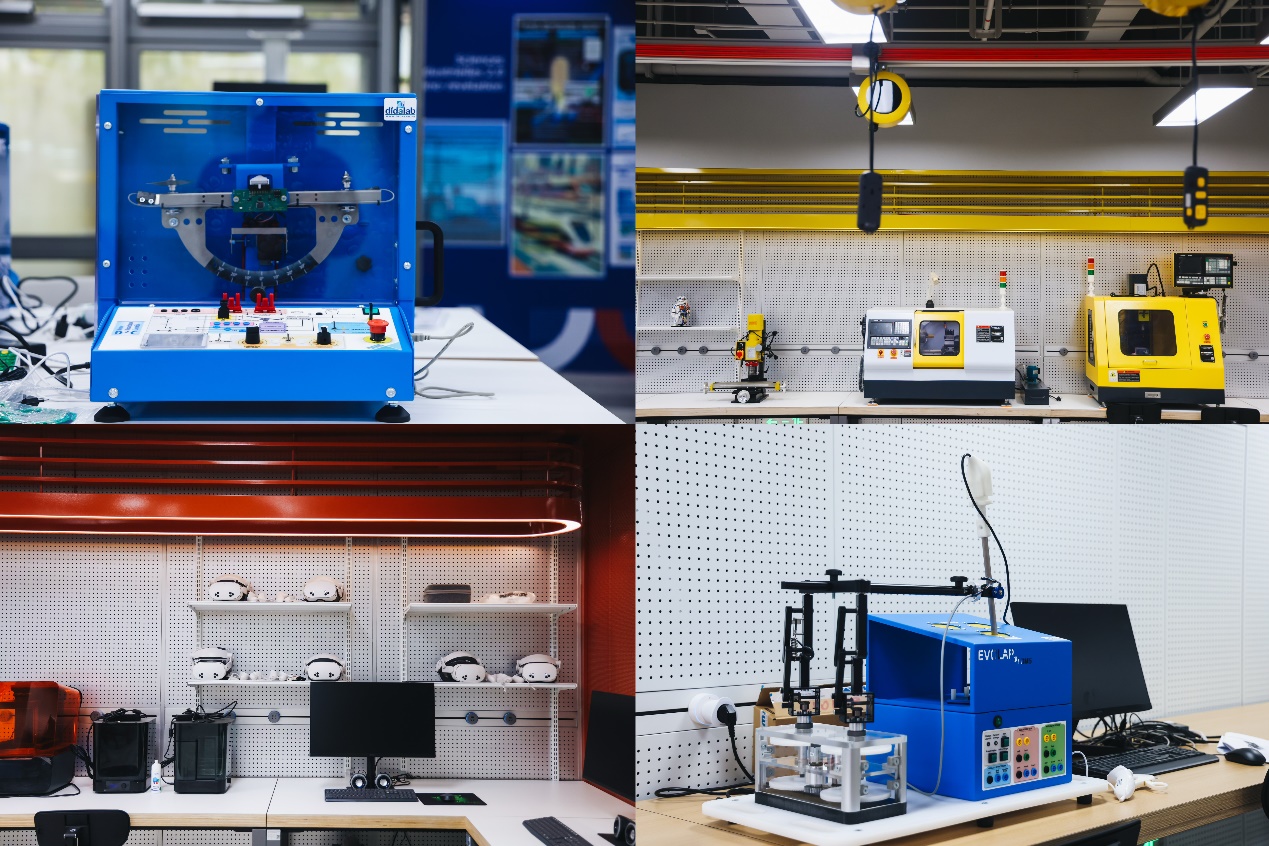
The exhibits also included scientific and technological innovation works created by ZFAI students through modern technology during their engineering practice classes. These works focused on the cultures of Liangzhu City, West Lake, and Beihang University.

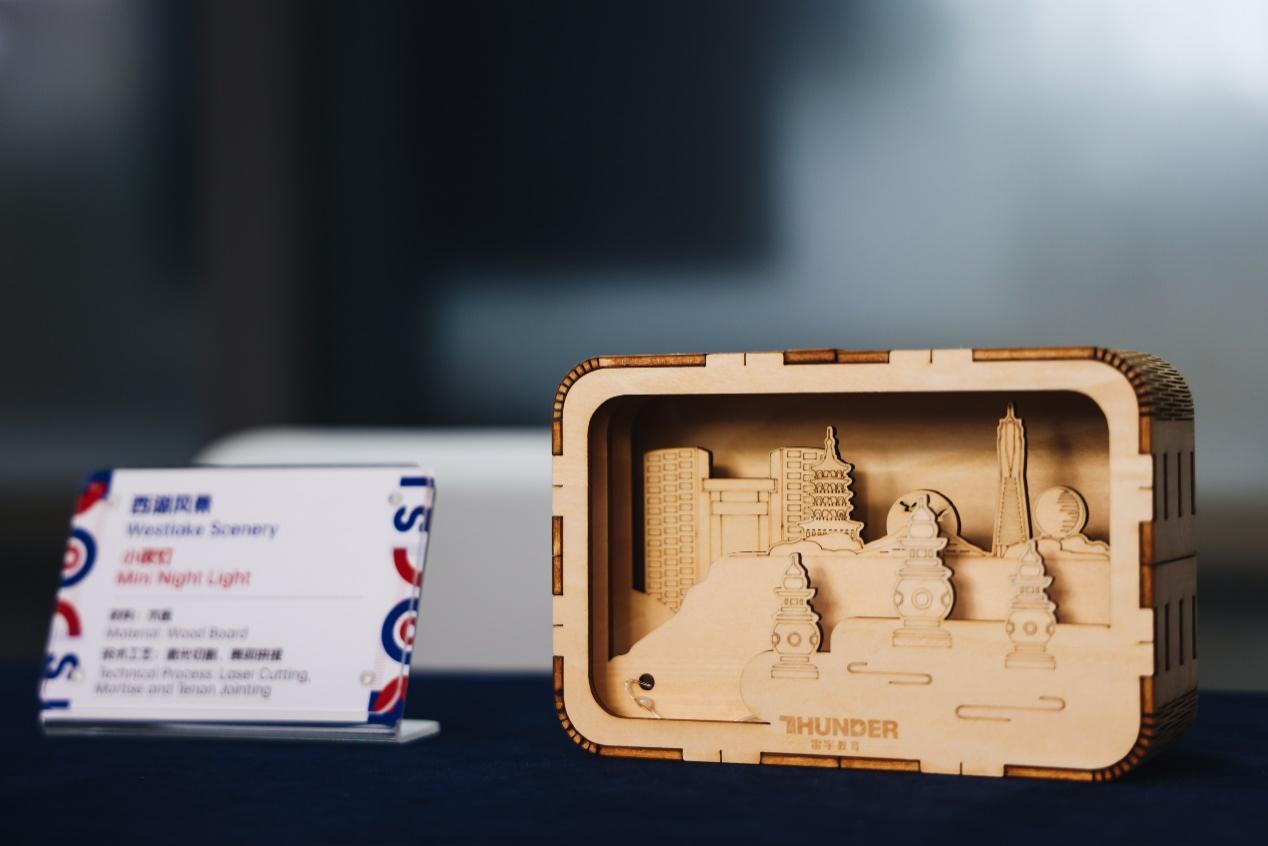
Gathering the strength of international facility, integrating industry and education
Behind the completion of the Industrial Science Laboratory lies the full dedication of an international faculty team. Previously, Hervé Riou, Honorary President of UPSTI, and its current President, Florent LE BOURHIS, provided in-depth training on "Industrial Science Pedagogy" for the faculty of H3I. The training integrated theory with practice, empowering teachers in all aspects—from curriculum design and equipment operation to cross-cultural classroom management. Starting this September, students will engage with real-world industrial challenges under the guidance of professional instructors.
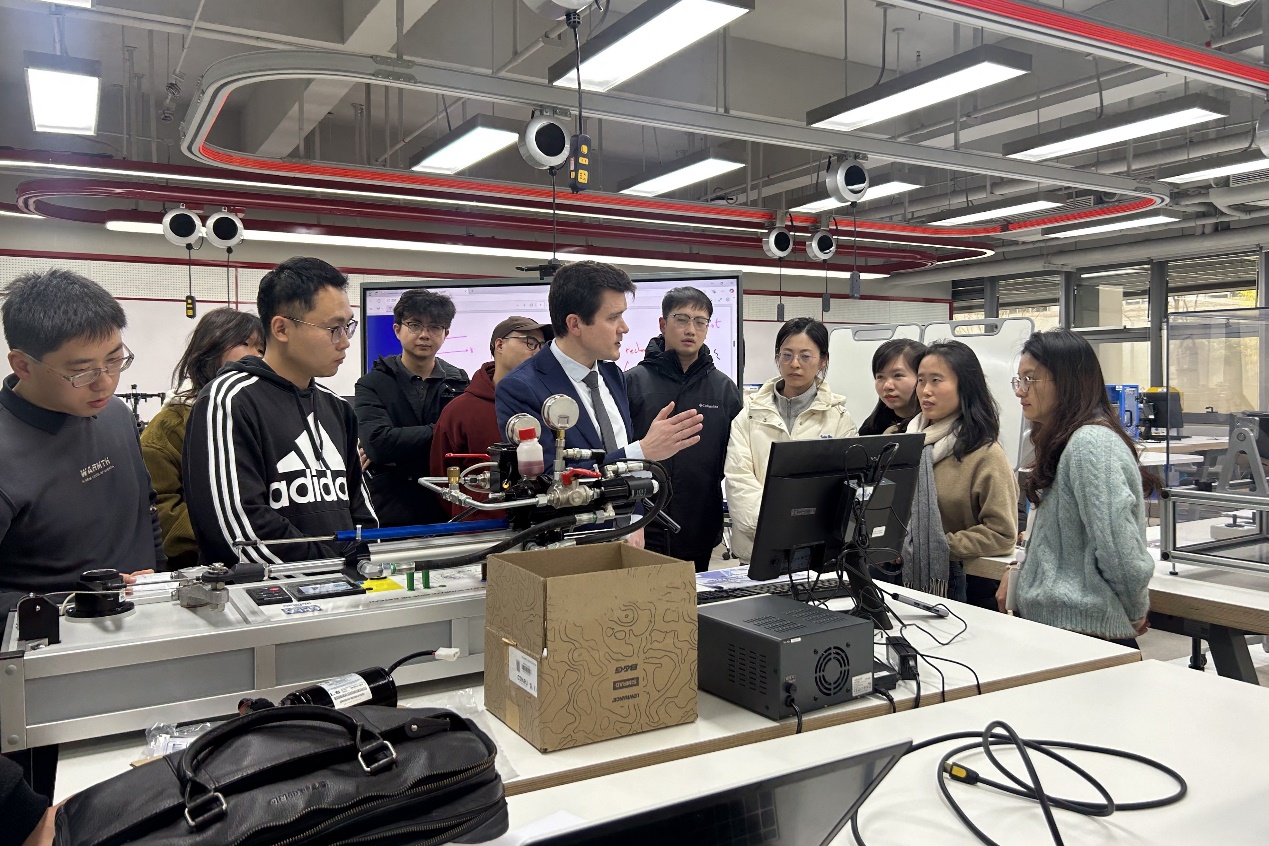
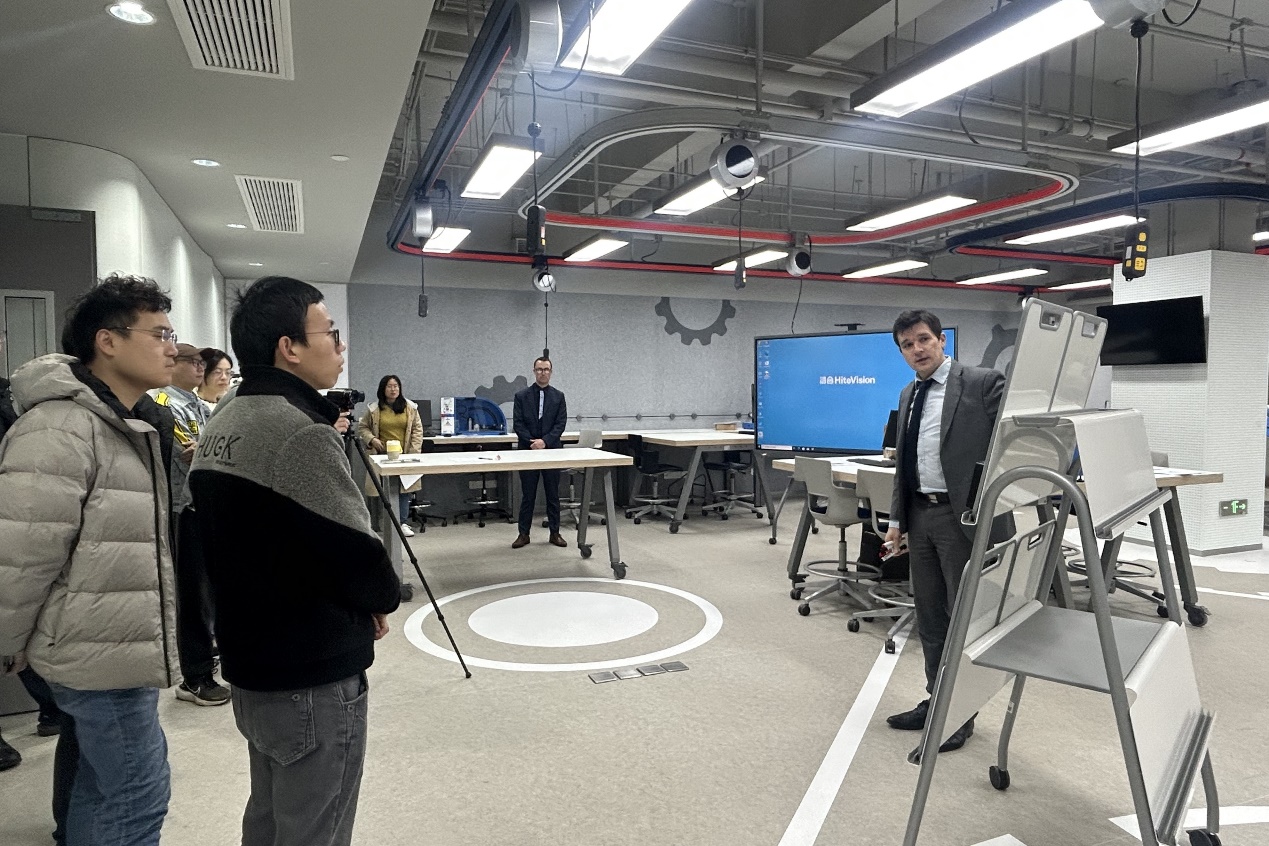
As the French concept of talent education converges with Hangzhou’s industrial gene, the Industrial Science Laboratory will strive to evolve into an “innovation reactor” that catalyzes the integration of local industry and education. Looking ahead, the laboratory will fulfill its mission of serving the local community. To that end, it will further break down barriers and conduct in-depth exchange and cooperation with local universities in such areas as subject construction, curriculum reform, practical teaching reform, and teaching staff development; it will collaborate with local primary and secondary schools to establish practical education bases and carry out industrial science popularization activities, thereby sharing teaching resources; it will partner with local enterprises to develop real-world topics and commercialize scientific research achievements; and it will leverage the disciplinary advantages of Beihang University and align with the needs of Hangzhou’s digital economy and high-end manufacturing sectors to inject innovative momentum into the local economic transformation and upgrading. Instead of a teaching platform only, the laboratory will serve as a hub for the deep integration of industry, academia, research and application. Personnel trained there will be not only engineers, but also contributors to urban upgrading.
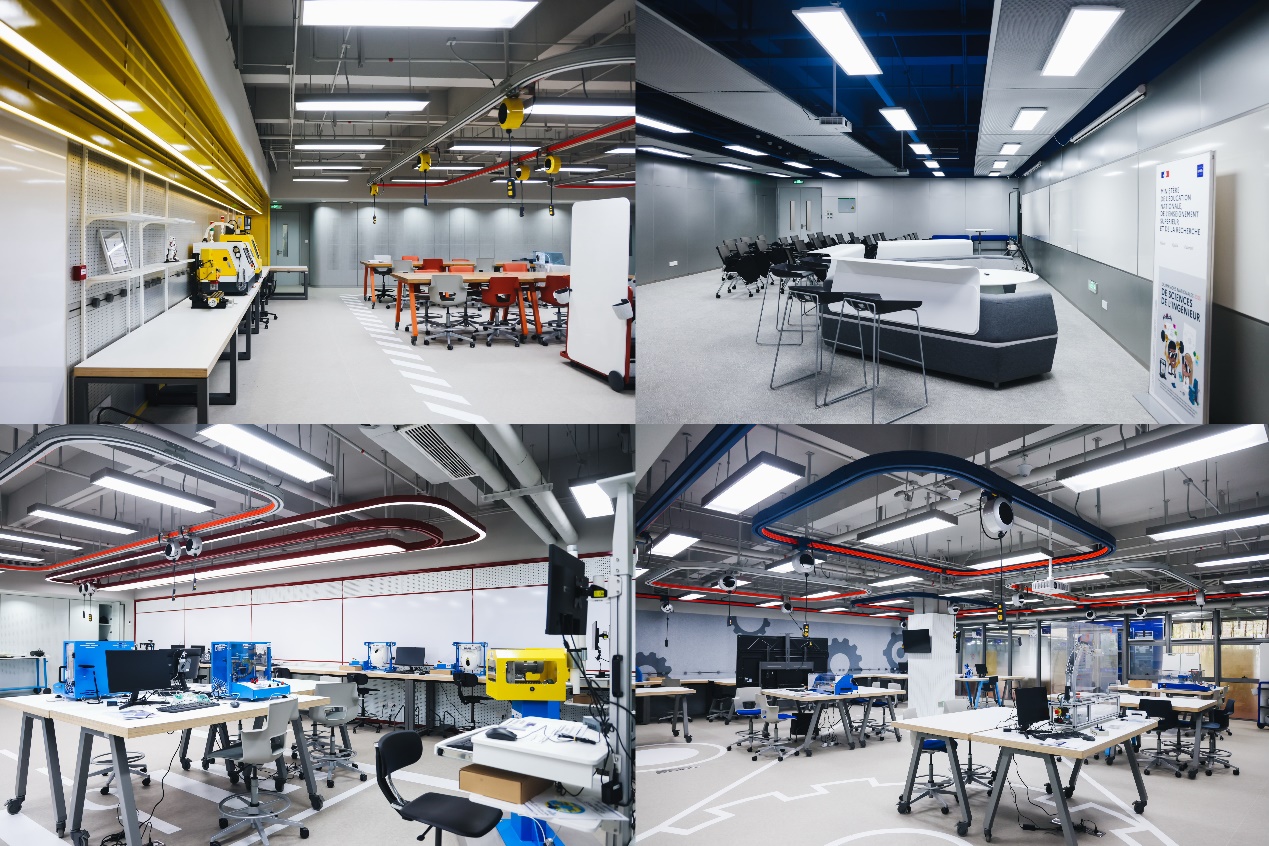
Integrating the wisdom of Chinese and French researchers, the Industrial Science Laboratory stands as a powerhouse for urban upgrading. In Zhejiang, the laboratory will combine theory with practice, train top engineers, integrate industry and education, and stimulate driving forces for innovation. Let’s follow the path of innovation and jointly build a new ecosystem that integrates industry, education, and research.
Approved by Dong Zhuoning, Zhang Wei, Xu Ran
Edited by Yuan Xiaohui

